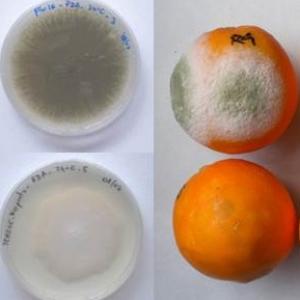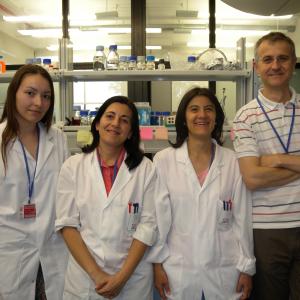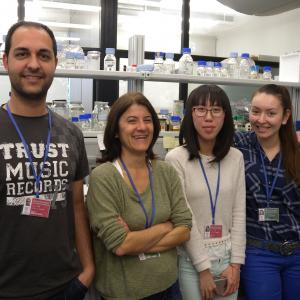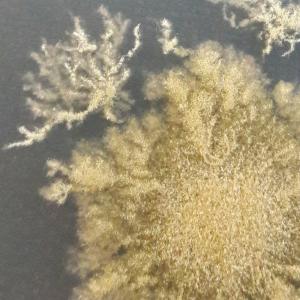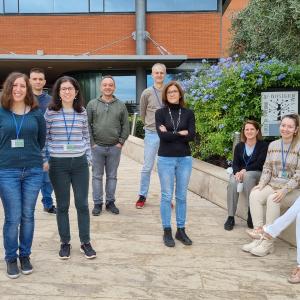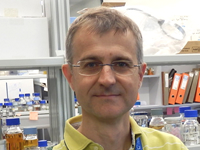
Biografía
Jose Marcos holds a CSIC Scientific Researcher position at IATA. He develops his scientific career in the areas of molecular plant pathology and molecular biology/genetics of filamentous fungi; also with contributions in food microbiology and plant biotechnology. He received his Ph.D. in Molecular Biology from the University of Valencia (1991) working on molecular plant virology and the characterization of plant viroids, under advice of Prof. R. Flores (IBMCP, Valencia). He then moved as a postdoctoral fellow for three years to the group of Prof. R. N. Beachy at TSRI (La Jolla, CA, USA), wherein he worked on plant genetic transformation for the development of virus-resistant plants. During this period, he began his interest in antimicrobial peptides (AMPs) and published the first example of a rationally designed synthetic peptide with activity against a plant virus (Marcos et al., 1995, Proc. Natl. Acad. Sci. USA 92: 12466). Back to Spain in 1995, he first joined the group of Prof. V. Pallás (then at the CEBAS, Murcia) to continue working on the molecular characterization and diagnosis of plant viruses and viroids. He moved to IATA and obtained a CSIC permanent position in 2000, with a scientific project on the characterization of fungus-fruit interactions and the development of alternatives for the control of fruit postharvest decay with a focus on the use of antimicrobial peptides.
Research in the laboratory focuses on the identification, characterization, and development of antimicrobial and antifungal peptides and proteins with application in agriculture and food science, mainly with activity against filamentous fungi. The research has contributed to: (i) the proposal of using antifungal peptides as sustainable alternatives of control in plant protection and postharvest conservation (Marcos et al., 2008, Annu. Rev. Phytopathol. 46: 273), using the pathosystem Penicillium digitatum-citrus fruit as an experimental model that also has high economic interest; and (ii) the identification of antifungal peptide mechanisms of action that are specific and not cytolytic (Marcos and Gandia, 2009, Expert Op. Drug Discov. 4: 659; Muñoz et al., 2012, Mol. Microbiol. 85: 89). One of the reference strains of P. digitatum (PHI26, CECT20796) was isolated and characterized in our laboratory (López-García et al., 2000, Mol. Plant-Microbe Interac. 13: 837), and was the first with its complete genome sequenced (Marcet-Houben et al., 2012, BMC Genomics 13: 646). The laboratory has also contributed significantly to the development of molecular and cell biology tools to study the biology and pathogenicity of P. digitatum (Gandia et al., 2014, Fungal Genet. Biol. 67: 58; Harries et al., 2015, Mol. Plant Pathol. 16: 748; Hernanz-Koers et al., 2018, Fungal Gen. Biol. 116: 51). We participate in the research group Fungal Biofactories (@FungalFact) in collaboration with Dr. Paloma Manzanares. The most recent investigations are related to the study and characterization of antifungal proteins (AFP) of fungal origin, both to decipher their basic functions in the biology of the producing fungus and for its biotechnological application as new antifungal biomolecules (Sonderegger et al., 2016, Microb. Cell Fact. 15: 192; Garrigues et al., 2017, Sci. Rep. 7: 14663; Garrigues et al., 2018, Front. Microbiol. 9: 2370; Bugueda et al., 2020, mSphere 5: e00595).
Jose F. Marcos (index h= 35) is co-author of a total of 131 publications, including 96 publications referenced in the SCI and the co-edition of two books. He has also been principal investigator of 8 National Plan projects, 2 European ERANet projects and partner of 2 European projects; filed 8 patents (5 of them international); and directed 8 doctoral theses. He has been the Director of IATA for the term 2019-2023, when IATA got the acreditaion as Center of Excelence "Severo Ochoa" to which committee of guarantors he belongs.
Group of Fungal Biofactories.
Proyectos
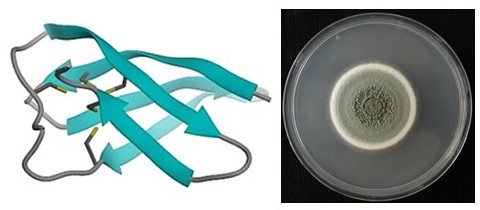
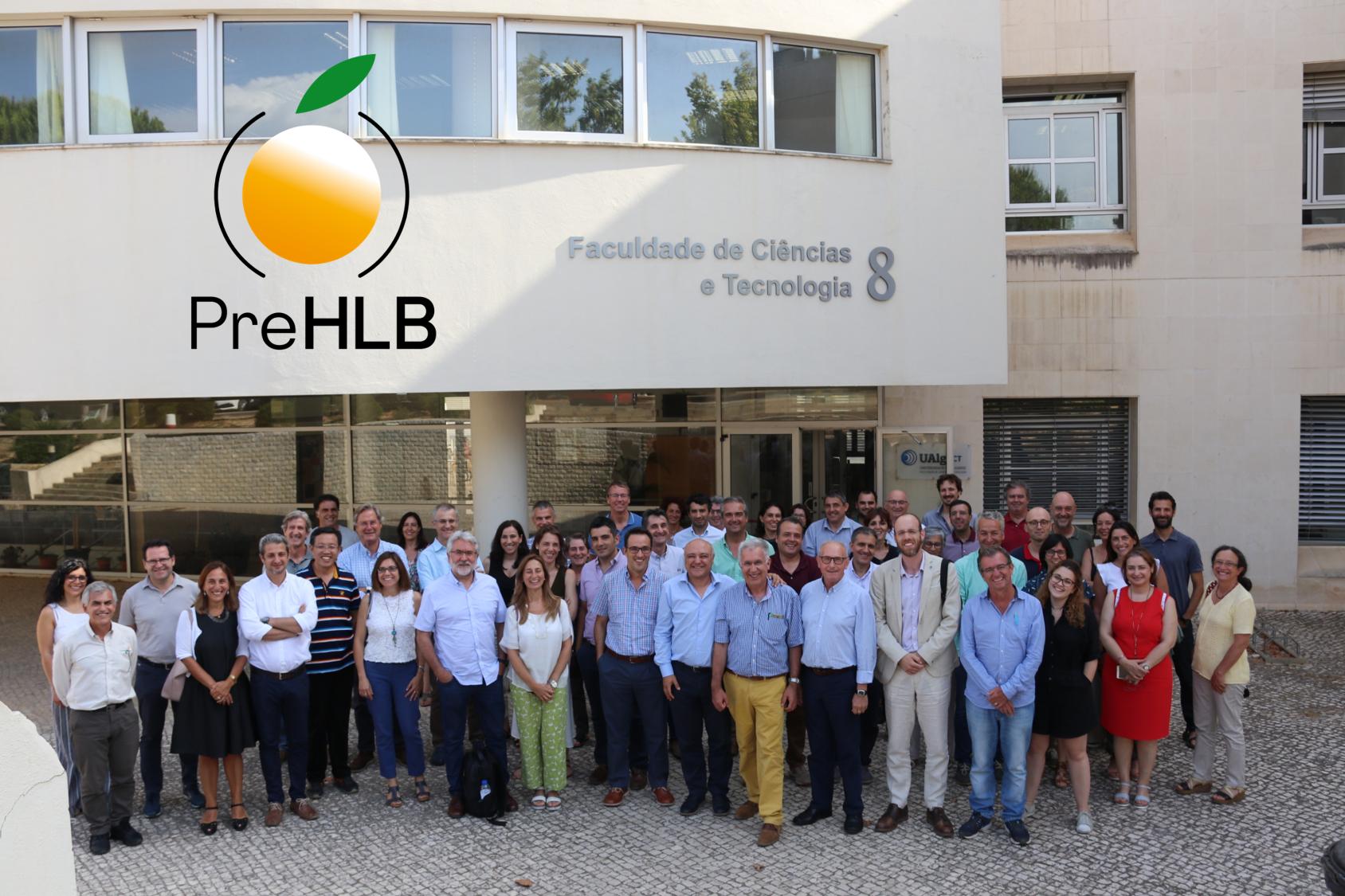

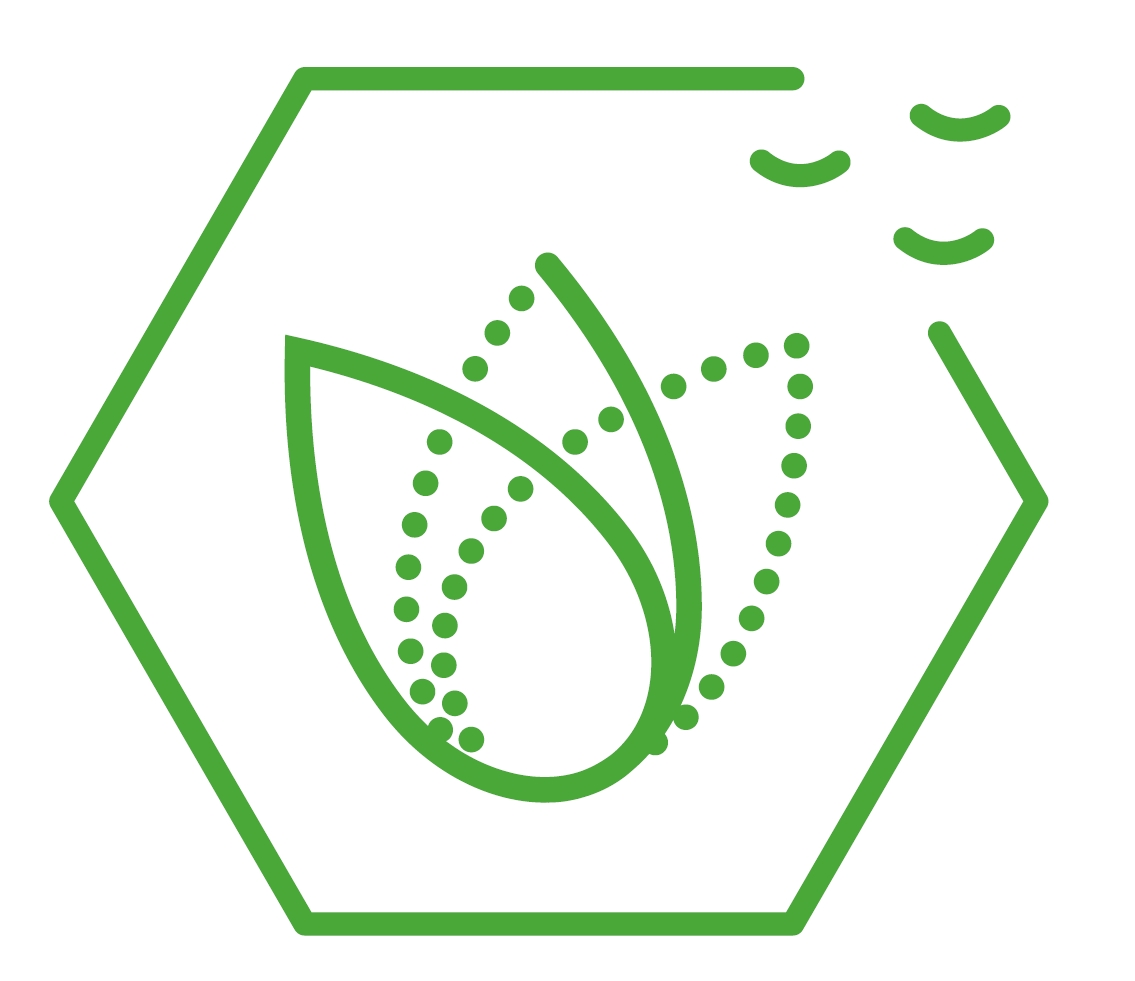
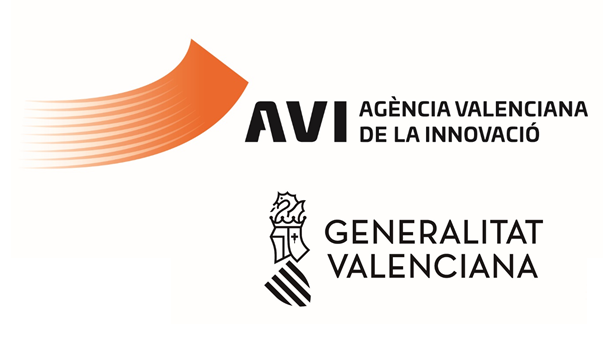
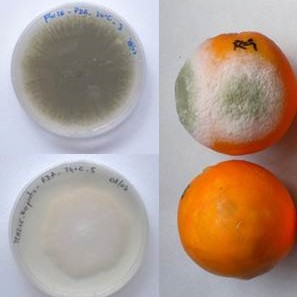
Publicaciones
Some selected publications:
Gandía, M., Garrigues, S., Hernanz-Koers, M., Manzanares, P. & Marcos, J. F. (2019). Differential roles, crosstalk and response to the Antifungal Protein AfpB in the three Mitogen-Activated Protein Kinases (MAPK) pathways of the citrus postharvest pathogen Penicillium digitatum. Fungal Genetics and Biology 124: 17-28. PMID: 30579886.
Hernanz-Koers, M., Gandía, M., Garrigues, S., Manzanares, P., Yenush, L., Orzaez, D. & Marcos, J. F. (2018). FungalBraid: A GoldenBraid-based modular cloning platform for the assembly and exchange of DNA elements tailored to fungal synthetic biology. Fungal Genetics and Biology 116: 51-61. PMID: 29680684.
Garrigues, S., Gandía, M., Castillo, L., Coca, M., Marx, F., Marcos, J. F. & Manzanares, P. (2018). Three antifungal proteins from Penicillium expansum: Different patterns of production and antifungal activity. Frontiers in Microbiology 9: 2370. PMCID: 6182064.
Garrigues, S., Gandía, M., Popa, C., Borics, A., Marx, F., Coca, M., Marcos, J. F. & Manzanares, P. (2017). Efficient production and characterization of the novel and highly active antifungal protein AfpB from Penicillium digitatum. Scientific Reports 7: 14663. PMCID: 5677034.
Garrigues, S., Gandía, M. & Marcos, J. F. (2016). On the occurrence and function of fungal antifungal proteins: the case study of the citrus postharvest pathogen Penicillium digitatum. Applied Microbiology and Biotechnology 100: 2243–2256. PMID: 26545756.
Harries, E., Gandía, M., Carmona, L. & Marcos, J. F. (2015). The Penicillium digitatum Protein O–Mannosyltransferase Pmt2 is required for cell wall integrity, conidiogenesis, virulence and sensitivity to the antifungal peptide PAF26. Molecular Plant Pathology 16: 748-761. PMID: 25640475.
Marcos, J. F., Muñoz, A., Pérez-Payá. E., Misra, S. & López-García, B. (2008). Identification and rational design of novel antimicrobial peptides for plant protection. Annual Review of Phytopathology 46: 273-301. PMID: 18439131.
Patentes
- Fecha de solicitud:dimecres, 4 novembre, 2015


